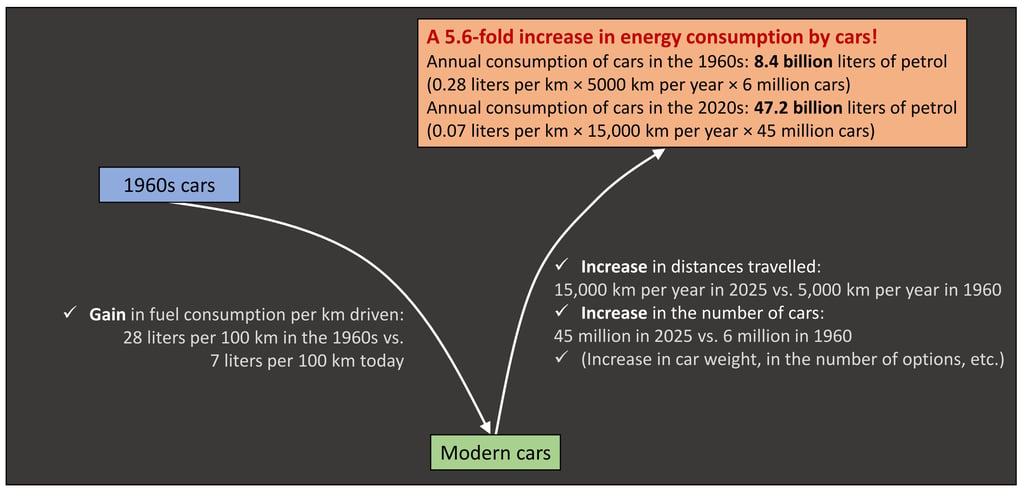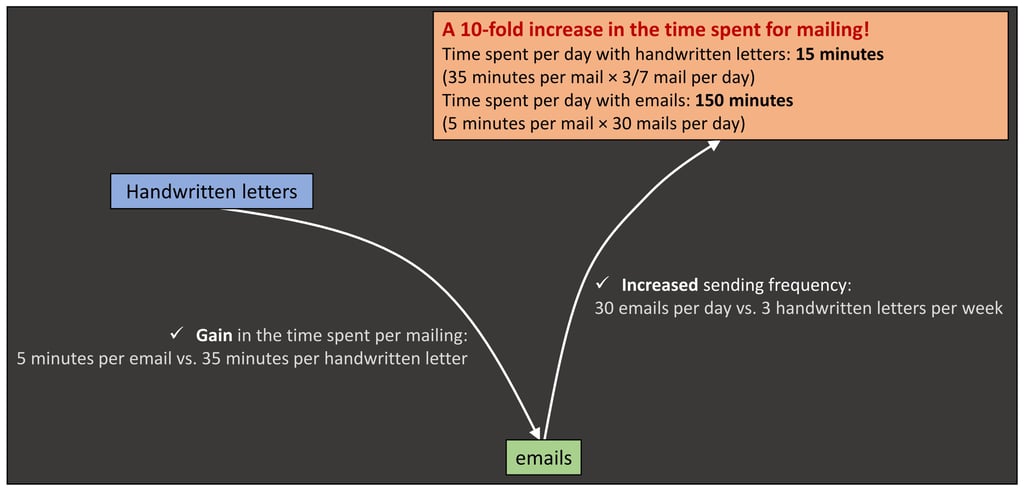
The Anthropocene Dictionary
Definitions of key notions and concepts related to the Anthropocene
Rebound effect / Jevons paradox
Definition: The rebound effect is a theory according to which an improvement in energy efficiency in a given area tends to be offset by the resulting increase in usage. The compensation can be partial, total or greater than the gain (referred to as overcompensation), the latter case corresponding to the Jevons paradox. In 1865, Jevons noted that following the introduction of James Watt's steam engine, which was more efficient than previous technologies (i.e., it required less energy for a given performance), coal consumption rose sharply rather than falling. The reason for this is that energy efficiency gains encouraged the widespread use of the steam engine, so that in aggregate, this new technology led to a rebound in energy consumption. The conclusion of this observation is that more energy-efficient technologies can increase total energy consumption, hence the paradox. The rebound effect is a fundamental mechanism for understanding the failure of attempts to decouple economic growth from environmental alteration: in a growing economy, which demands ever-faster and ever-more-production, any initiative to improve the energy efficiency of a process generally results in the opposite of the desired goal, due to increased usage. Initially formulated for energy, the rebound effect can be applied at other levels, such as time or money.
Example of energy rebound effect: Every IT operation we carry out today consumes much less energy than in the 1980s, for example (the improvement in energy efficiency is very strong in the digital sector), which should contribute to lower energy consumption in the digital sector. However, usage is increasing continuously and extraordinarily strongly, particularly today with the AI frenzy, so that ultimately the digital sector's energy consumption (and associated greenhouse gas emissions) is exploding and overcompensating for the gains inherent in improving energy efficiency.
Example of time rebound effect: Modern trains are faster than their predecessors, which should help reduce the time spent commuting. However, we tend to travel much more frequently and further, which ultimately increases the time we spend commuting.
Example of money rebound effect: Traveling by bike rather than by car allows you to save money (fuel, car maintenance), which increases available cash. This can be reinvested in a trip to Patagonia, so that the money spent can even exceed what was saved. In this example, there is also an energy rebound effect (and a rebound effect in greenhouse gas emissions), since the gains made by using a bike are wiped out by the plane trip to Patagonia.
The definition of the rebound effect and Jevons paradox in pictures: In a world driven by the ultimate goal of economic growth, the gains (in energy, time, money, etc.) made in one area tend to be offset by the resulting increase in usage. The top image shows an example of the energy rebound effect with the automobile: modern cars consume much less fuel than their 1960s ancestors, but they are more numerous, heavier, contain many more energy-guzzling options and each tends to run more, which overcompensates for the gains inherent in improving the energy efficiency of each car's engine. The lower image shows an example of the time rebound effect of evolving communication methods: emails enable us to exchange information much more quickly than handwritten letters, but they also encourage us to exchange much more, which offsets the time saved by sending each letter. These two examples of the rebound effect describe a situation where the increase in usage overcompensates for the gains, corresponding to Jevons paradox. The figures presented in these two graphs are mainly intended to illustrate the rebound effect and are not necessarily intended to be realistic, even if the evolution of fuel consumption per car or the increase in the number of cars describe the trend in France rather well.




